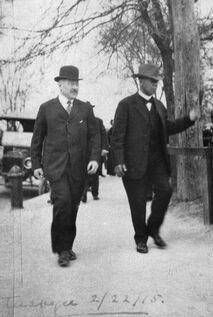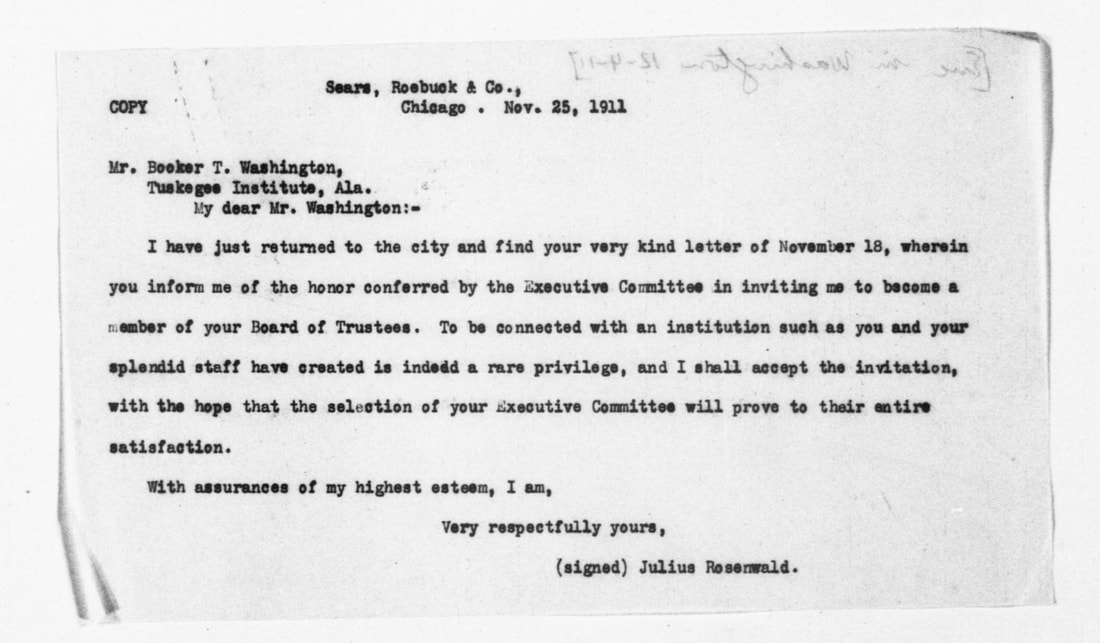|
Top photo: Washington, n.d., Library of Congress; Rosenwald, n.d., Farzan
|
In 1911, Washington was seeking a new board member for Tuskegee.
"The black educator had asked L. Wilbur Messer* to suggest a prominent, white Chicagoan for the Tuskegee Board of Trustees. Messer...named JR." - Ascoli [79] (*A mutual friend of Washington and Rosenwald.) At Messer's suggestion, Rosenwald hosted a luncheon for Washington in Chicago and Washington offered him a place on the board of Tuskegee. Rosenwald and his family visited the Institute in October of 1911. He was deeply impressed. "I was astonished at the progressiveness in the school. I don't believe there is a white industrial school in America or anywhere that compares to Mr. Washington's Tuskegee." - Julius Rosenwald, in Ascoli [27]
Rosenwald was also profoundly saddened by the poverty of the African-American communities he saw. He felt a strong connection to the plight of African-Americans, comparing it to the difficulties Jews faced in Europe.
"Whether it is because I belong to a people who have known centuries of persecution, or whether it is because I am naturally inclined to sympathize with the oppressed, I have always felt keenly for the colored race." - Rosenwald, 1911, in Deutsch [28]
In 1912, Rosenwald donated $25,000* for teacher training at Tuskegee. Washington proposed a novel idea. (*$648,000 in today's dollars)
"Building black public schools in the farmland around Tuskegee was something Booker T. Washington longed to do...he suggested that JR agree to fund the building of six rural schools estimated at $600* each...JR would put up half of this amount...local Blacks would then match that." - Ascoli [29] (*$15,500 in today's dollars) "Rosenwald replied to Washington's letter four days later, agreeing to spend $2,800** on rural schools." - Ascoli [30] (**$72,000 in today's dollars) Rosenwald and Washington started by building six schools near Tuskegee; Washington oversaw the construction.
|

